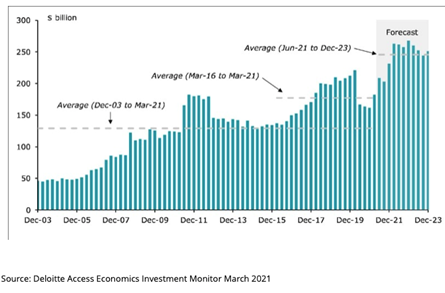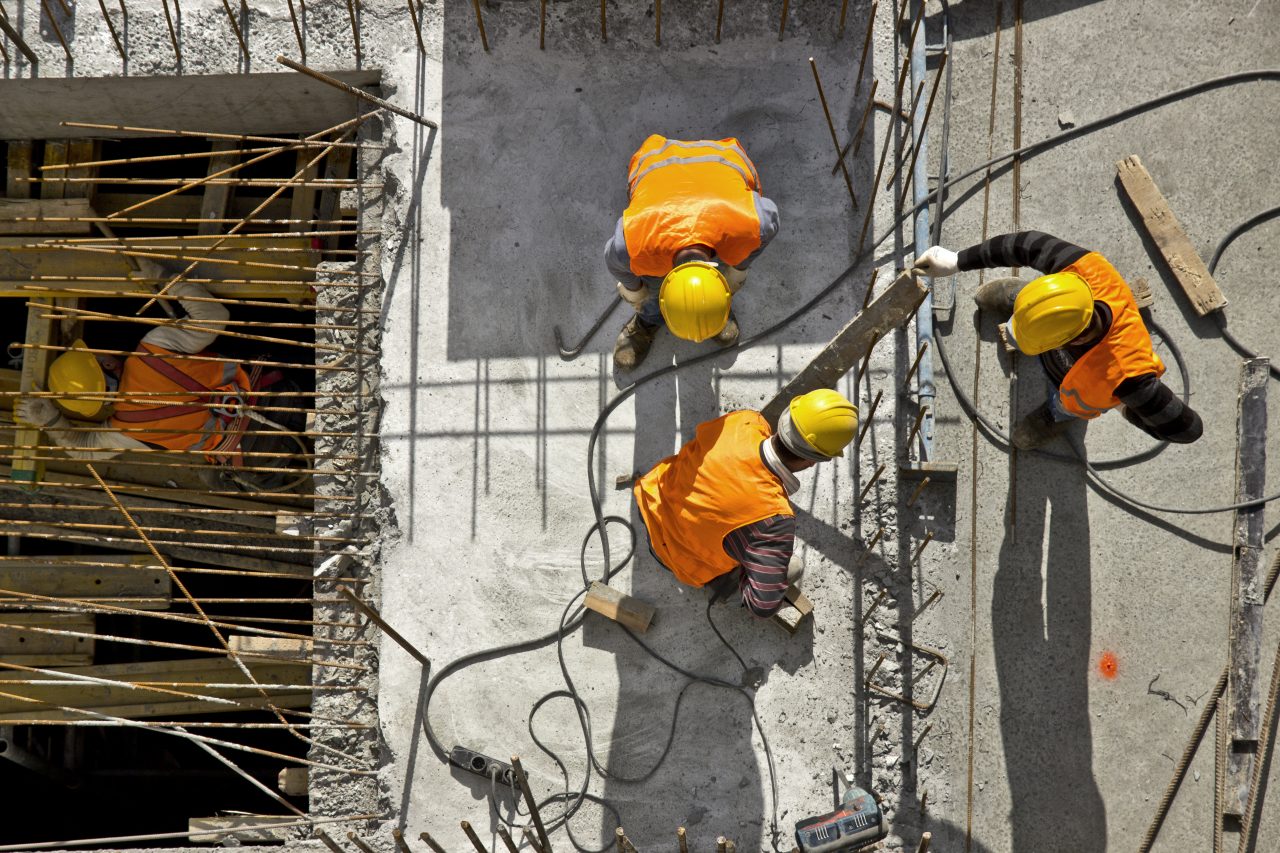For example, the Federal Government announced an investment of $110 billion over 10 years from 2021-22 in transport infrastructure across Australia. Additionally, the 2021 budget announced a further spending of $15.2 billion over 10 years in infrastructure investment. Altogether, after pooling together the latest state and federal budgets, the AFR suggests a pipeline of over $300 billion new state-based infrastructure projects.
Forecast
This level of investment equates to a 40 per cent increase in the value of infrastructure projects between 2015 and 2023, according to Deloitte. This boosted infrastructure investment is driving growth in the construction sectors, which is expected to grow 2.6 per cent in 2021, following a 6.6 per cent contraction in 2019.

Previously, massive infrastructure projects have relied heavily on importing skills. However, with international border closures to remain in place for the next 18 months, the already finite pool of skilled infrastructure labour will face increased pressure. The Prime Minister announced an 85 per cent drop in net overseas migration over 2020-21, equating to an approximate drop of 97,000 people by June. The recent budget forecasts a similar trajectory for 2021-22, which expects a further fall of 72,000 people. Likewise, the number of temporary work (skilled) visas granted fell 50% from 2019 levels, to just 17,000.
Australia’s Skill Demand
Hence, this massive investment poses the opportunity for extensive economic benefits, with infrastructure investment expected to boost job creation and new business opportunities. However, in an industry already exposed to massive skill shortages prior to COVID, the Australian Chamber of Commerce and Industry has warned that this unprecedented investment has ‘exacerbated’ the industry’s vulnerability. AECOM – the major engineering firm behind Sydney’s underwater Western Harbour Tunnel and Melbourne’s Airport Rail – remains uncertain on how to attract the skilled and experienced engineers and specialists it requires. Previously, the firm hired up to 15 per cent international migrants to supply in-demand skills. Likewise, a survey of ARA members revealed that over 50 per cent of respondents cited an expected increase in demand for skilled overseas workers over the next 18 months.
Therefore, a lack of immediate access to skilled workers from overseas may impede major infrastructure projects, and poses a risk to the success of the governments infrastructure-led economic recovery.
For more Industry Insights: https://www.infrastructurepeople.net.au/industry-insights/


